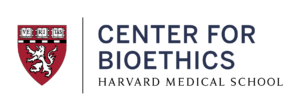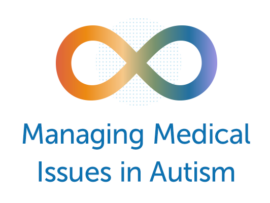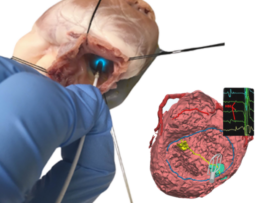LIVE: 2025 Harvard Surgical Ethics Conference
$50.00 – $195.00
The Harvard Medical School Center for Bioethics Surgical Ethics Working Group (SEWG) is offering the 2025 Harvard Surgical Ethics Conference that will explore where ethical decision-making intersects with surgical practice. Session topics will include teaching bioethics, transplant ethics, global surgery, and AI in surgery. The need for ethics education and expertise is driven by rapid advancements in technology, evolving surgical practices, teaching methods, and global disparities in surgical care, leading to more difficult ethical challenges for healthcare professionals.
Description
The Harvard Medical School Center for Bioethics Surgical Ethics Working Group (SEWG) is offering the 2025 Harvard Surgical Ethics Conference that will explore where ethical decision-making intersects with surgical practice. Session topics will include teaching bioethics, transplant ethics, global surgery, and AI in surgery. The need for ethics education and expertise is driven by rapid advancements in technology, evolving surgical practices, teaching methods, and global disparities in surgical care, leading to more difficult ethical challenges for healthcare professionals.
Course Format
This virtual conference series will be held weekly on Mondays over four weeks in April 2025. Each session will run from 7:00-9:00 p.m. Eastern Time and will feature a different topic exploring timely and, in some cases, controversial ethical topics in surgery.
Each session will include three short talks (20-25 minutes each) by expert faculty from the Center for Bioethics and others. This will be followed by a moderated question and answer period with the speakers. The interactive format is designed to encourage participant engagement and address their specific questions.
| Session Date | Topic |
| 4/7/2025 | Session #1: “Teaching Bioethics”
This session discusses important trends in the teaching of bioethics including: how clinical case studies can be used in innovative ways in the classroom; how ethical theories and frameworks that are learned in the classroom can be applied in clinical settings; and how AI is radically changing biomedical education. |
| 4/14/2025 | Session #2: “Controversies in Transplant Ethics”
This session discusses: whether normothermic regional perfusion, which is increasingly being used in donors after circulatory determination of death, violates the dead donor rule and is thereby unethical; considers whether uterine transplantation is ethically acceptable in women with uterine infertility; and analyzes the guidelines for the conduct and oversight of research on brain-dead and recently deceased subjects. |
| 4/21/2025 | Session #3: “Ethical Challenges in Global Health and Surgery”
The lack of access to surgical care is worst in low- and middle-income countries. This session will consider the ethical considerations that must be taken into account when determining global surgery priorities, how the loss of trained physicians to more wealthy countries can affect efforts to improve surgery in low- and middle-income countries, and whether and under what circumstances is genital cutting or surgery ethically permissible is children. |
| 4/28/2025 | Session #4: “Implementation of AI in Surgery: Ethical Considerations”
This session will consider the ethical challenges of incorporating artificial intelligence in the practice of surgery including: patient privacy, data security, and ownership concerns (legal and ethical); the impact of over-reliance on AI on the art and science of medicine, especially the cognitive training and development of future surgeons; ethical concerns with specific applications that are currently being introduced in patient care. |
At the end of each session, participants will be required to complete a short online series of self-assessment questions. The course aims to enable participants to critically assess and apply ethical principles in their own practice.
For a more detailed schedule of each session, including the speakers, titles of individual talks, and moderators, please refer to the “Schedule” tab.
Learning Objectives:
At the conclusion of this educational program, learners will be able to:
-
-
-
- Utilize case studies, ethical theories and frameworks, and artificial intelligence for the development and delivery of surgical ethics education, ensuring that the methods promote integrity, professionalism, and respect for persons.
- Critically evaluate ethical dilemmas in transplantation including normothermic regional perfusion for organ donation, vascularized composite allotransplants including uterus transplants, and the use of brain-dead donors as experimental subjects for xenotransplantation using case-based discussions and current guidelines.
- Analyze ethical challenges in global surgery with a focus on global health priorities and the complex effects of the loss of local expertise on efforts to improve surgical access in low-and-middle income countries to order to augment decision-making in resource-limited settings.
- Understand and assess the impact of artificial intelligence on clinical decision-making, identify potential risks and benefits, where it might most easily and appropriately be deployed, and propose strategies to ethically integrate AI into surgical practice.
- Develop strategies for implementing ethical guidelines into daily surgical practice by compiling knowledge from case studies, panel discussions, and journals, aimed at improving patient care and professional accountability.
-
-
To register, please click on the register tab above. If this is your first time registering for a conference at Boston Children’s Hospital, you will need to create an account. Returning users can log in to their account to complete the registration process.
| Registration Type | Price |
| Physician | $195.00 |
| Nurse/Other Allied Professionals | $150.00 |
| Trainee/Student | $50.00 |
For an LMICs discount rate, please get in touch with us at cmedepartment@childrens.harvard.edu.
Presentations will be available on-demand for all paid attendees for six weeks after the conference.
Pre-registration is required. Once you have registered you will receive a confirmation email with a registration receipt. Course access instructions will be sent a few days prior to the course launch. If you have questions or need assistance with registration, please direct all inquiries to cmedepartment@childrens.harvard.edu.
Online Course Cancellation, Transfer & Refund Policy
Due to the propriety materials and content of each course, online virtual courses orders are NOT eligible for refund, cancellation or transfer.
Other Terms and Conditions:
Online training courses may NOT be transferred to another Participant. Participants have 2 weeks to access any virtual online course content. Participants have until the expiration date to access and complete any enduring material courses. Boston Children’s Hospital CE is not responsible for user technical difficulties including loss of internet, power outages, etc.
Cancellation of Services
Although highly unlikely, in case an event is canceled or postponed, Boson Children’s can provide a full refund or offer a credit towards future events to those who have already registered.
Refund Policy
Refunds will be made in the following ways: For payments received by credit or debit cards, the same credit/debit card will be refunded.
Accreditation
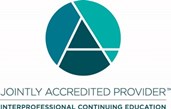 In support of improving patient care, Boston Children’s Hospital is jointly accredited by the Accreditation Council for Continuing Medical Education (ACCME), the Accreditation Council for Pharmacy Education (ACPE), and the American Nurses Credentialing Center (ANCC), to provide continuing education for the healthcare team.
In support of improving patient care, Boston Children’s Hospital is jointly accredited by the Accreditation Council for Continuing Medical Education (ACCME), the Accreditation Council for Pharmacy Education (ACPE), and the American Nurses Credentialing Center (ANCC), to provide continuing education for the healthcare team.
Physician
Boston Children’s Hospital designates this live activity for a maximum of 8.00 AMA PRA Category 1 Credits ™. Physicians should claim only credit commensurate with the extent of their participation in this activity.
Nurse
Boston Children’s Hospital designates this activity for 8.00 contact hours for nurses. Nurses should only claim credit commensurate with the extent of their participation in the activity.
Psychology
Continuing Education (CE) credits for psychologists are provided through the co-sponsorship of the American Psychological Association (APA) Office of Continuing Education in Psychology (CEP). The APA CEP Office maintains responsibly for the content of the programs.
This course has been approved for 8.00 continuing education credits.
Social Work
As a Jointly Accredited Organization, Boston Children’s Hospital is approved to offer social work continuing education by the Association of Social Work Boards (ASWB) Approved Continuing Education (ACE) program. Organizations, not individual courses, are approved under this program. State and provincial regulatory boards have the final authority to determine whether an individual course may be accepted for continuing education credit. Boston Children’s Hospital maintains responsibility for this course. Social workers completing this course receive 8.00 ACE CE continuing education credits.
Pharmacy
This activity carries a maximum of 8 contact hours. Pharmacists should only claim credit commensurate with the extent of their participation in the activity.
MOC II
Successful completion of this CME activity, which includes participation in the activity, with individual assessments of the participant and feedback to the participant, enables the participant to earn:
8.00 MOC points in the American Board of Pediatrics (ABP) Maintenance of Certification (MOC) program.
8.00 MOC points with the American Board of Internal Medicine’s (ABIM) Maintenance of Certification (MOC) program.
8.00 MOC points in the American Board of Anesthesiology (ABA) Maintenance of Certification (MOC) program.
8.00 MOC points in the American Board of Surgery (ABS) Maintenance of Certification (MOC) program.
Disclosure Policy
Boston Children’s Hospital adheres to all ACCME Essential Areas, Standards, and Policies. It is Boston Children’s policy that those who have influenced the content of a CE activity (e.g. planners, faculty, authors, reviewers and others) disclose all relevant financial relationships with commercial entities so that Boston Children’s may identify and resolve any conflicts of interest prior to the activity. These disclosures will be provided in the activity materials along with disclosure of any commercial support received for the activity. Additionally, faculty members have been instructed to disclose any limitations of data and unlabeled or investigational uses of products during their presentations.
Disclosure Statement
The following planners, speakers, and content reviewers, on behalf of themselves, have reported the following relevant financial relationships with any entity producing, marketing, reselling, or distributing health care goods or services consumed by, or used on patients:
Mitigation of Relevant Financial Relationships
Boston Children’s Hospital adheres to the ACCME’s Standards for Integrity and Independence in Accredited Continuing Education. Any individuals in a position to control the content of a CE activity, including faculty, planners, reviewers or others are required to disclose all relevant financial relationships with ineligible entities (commercial interests). All relevant conflicts of interest have been mitigated prior to the commencement of the activity.
Additional information
| Credit Type | AAPA Category 1 (Physician Assistant), AMA PRA Category 1 Credits™ (MD, DO, NP, PA), Contact Hours (Nurse, Nurse Practitioner) |
|---|---|
| Duration | |
| Format | |
| Topic | |
| Expiration Date | |
| Release Date | |
| Profession | Nurse/Other Allied Professionals, Physician, Student/Trainee |
Faculty
 J. Wesley Boyd, M.D., Ph.D. J. Wesley Boyd, M.D., Ph.D.
|
||
|---|---|---|
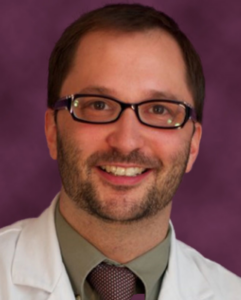 Anthony C. Breu, M.D. Anthony C. Breu, M.D. |
||
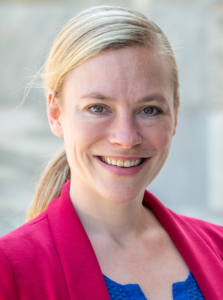 Kelsey N. Berry, Ph.D. Kelsey N. Berry, Ph.D. |
||
 Adam Rodman, M.D., M.P.H. Adam Rodman, M.D., M.P.H. |
||
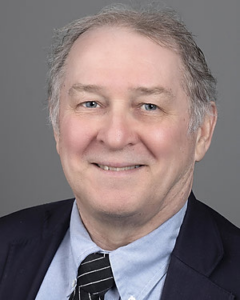 Richard Whyte, M.D. Richard Whyte, M.D. |
||
Keren Ladin, Ph.D., M.Sc. |
||
 Louise P. King, M.D., J.D. Louise P. King, M.D., J.D. |
||
 Douglas W. Hanto, M.D., Ph.D., M.B.E. Douglas W. Hanto, M.D., Ph.D., M.B.E. |
||
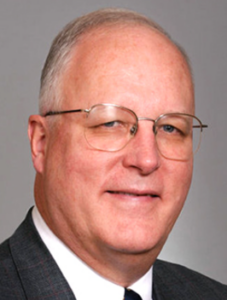 John E. Mayer Jr., M.D. John E. Mayer Jr., M.D. |
||
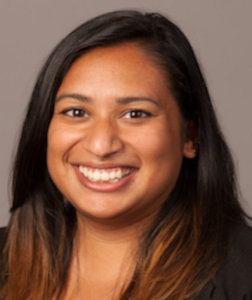 Rashi Jhunjhunwala, M.D., M.A. Rashi Jhunjhunwala, M.D., M.A. |
||
Barnabas Alayande, M.B.B.S., Pg.D.TH., M.B.A. |
||
Brian D. Earp, Ph.D.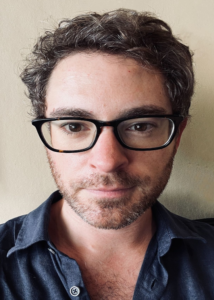 |
||
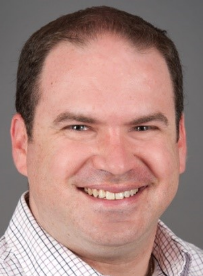 Jonathan Marron, M.D., M.P.H. Jonathan Marron, M.D., M.P.H. |
||
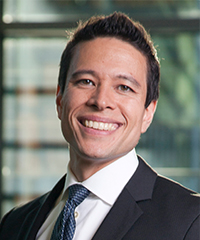 Francis X. Shen, J.D., Ph.D. Francis X. Shen, J.D., Ph.D. |
||
Theresa Williamson, M.D., M.P.H.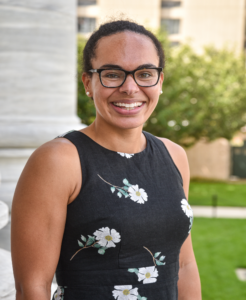 |
||
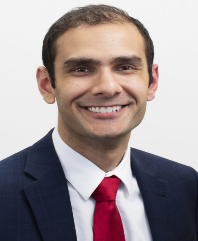 Rohaid Ali, M.D. Rohaid Ali, M.D. |
||
Schedule
| Session 1: Monday, April 7, 2025
Teaching Bioethics (Moderator: J. Wesley Boyd, M.D., Ph.D.)
This session discusses important trends in the teaching of bioethics including: how clinical case studies can be used in innovative ways in the classroom; how ethical theories and frameworks that are learned in the classroom can be applied in clinical settings; and how AI is radically changing biomedical education. |
|||
| Session 2: Monday, April 14, 2025
Current Controversies in Transplant Ethics (Moderator: Richard Whyte, M.D.)
This session discusses: whether normothermic regional perfusion, which is increasingly being used in donors after circulatory determination of death, violates the dead donor rule and is thereby unethical; considers whether uterine transplantation is ethically acceptable in women with uterine infertility; and analyzes the guidelines for the conduct and oversight of research on brain-dead and recently deceased subjects. |
|||
| Session 3: Monday, April 21, 2025
Ethical Challenges in Global Surgery (Moderator: John E. Mayer Jr., M.D.)
The lack of access to surgical care is worst in low- and middle-income countries. This session will consider the ethical considerations that must be taken into account when determining global surgery priorities, how the loss of trained physicians to more wealthy countries can affect efforts to improve surgery in low- and middle-income countries, and whether and under what circumstances is genital cutting or surgery ethically permissible in children. |
|||
| Session 4: Monday, April 28, 2025
Implementation of AI in Surgery: Ethical Considerations (Moderator: Jonathan Marron, M.D., M.P.H.)
This session will consider the ethical challenges of incorporating artificial intelligence in the practice of surgery including: patient privacy, data security, and ownership concerns (legal and ethical); the impact of over-reliance on AI on the art and science of medicine, especially the cognitive training and development of future surgeons; ethical concerns with specific applications that are currently being introduced in patient care. |
Exhibitors/Sponsors


